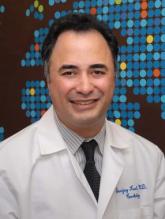The European Commission has approved the use of rivaroxaban in combination with antiplatelet therapy to help prevent atherothrombotic events after acute coronary syndrome.
The drug was approved at a dose of 2.5 milligrams twice daily in adults with elevated cardiac biomarkers.
The approval was expected, as the European Medicines Agency Committee for Medicinal Products for Human Use recommended rivaroxaban for the indication on March 21. Rivaroxaban is marketed outside the United States by Bayer HealthCare and in the United States by Janssen Pharmaceuticals, Inc., a division of Johnson & Johnson, as Xarelto.
The approval for secondary prevention was based on results from the ATLAS ACS 2-TIMI 51 (Anti-Xa Therapy to Lower Cardiovascular Events in Addition to Aspirin With/Without Thienopyridine Therapy in Subjects With Acute Coronary Syndrome) study of more than 15,500 patients. In the trial, rivaroxaban 2.5 mg twice daily added to standard antiplatelet therapy – low-dose aspirin with or without a thienopyridine (clopidogrel or ticlopidine) – significantly reduced the composite primary efficacy endpoint of cardiovascular death, myocardial infarction, or stroke in patients after a recent ACS compared to those who received standard antiplatelet therapy alone, according to Bayer.
Based on that trial, the 2012 European Society of Cardiology guidelines recommended that treatment with rivaroxaban be considered for patients with ST-segment elevation myocardial infarction (STEMI) who are at low bleeding risk and on antiplatelet therapy with aspirin and clopidogrel, the company said.
In a statement issued by Bayer, Dr. C. Michael Gibson, Chairman of the PERFUSE Study Group at Harvard Medical School and the Principal Investigator in the ATLAS ACS studies, said that ACS patients are at risk for secondary events because thrombin levels remain elevated long afterwards. "In the ATLAS ACS 2-TIMI 51 study, we’ve shown that treating these patients with a low dose of rivaroxaban in combination with standard antiplatelet therapy targets both pathways of clot formation, providing more complete long-term protection, including significant reduction in mortality risk," said Dr. Gibson.
Janssen awaits Food and Drug Administration approval for secondary prevention for patients with ACS. The company first sought approval in 2011. A year later, the FDA requested more data. In May 2012, an FDA advisory panel voted against approval of the indication. In March this year, the FDA again said there were outstanding issues that needed to be addressed.
The drug was first approved in 2011 for prophylaxis of deep vein thrombosis or pulmonary embolism in patients undergoing hip or knee replacement surgery. It now has five additional approvals in the United States, including the treatment of DVT or PE and for reducing the recurrence of DVT and PE after initial treatment. Rivaroxaban is approved in 120 countries.
aault@frontlinemedcom.com
On Twitter @aliciaault
